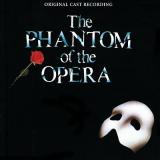Magical Lasso Lyrics
Magical Lasso
[BOUQUET]Like yellow parchment is his skin ...
A great black hole served as the nose that never grew ...
You must be always on your guard,
Or he will catch you with his magical lasso!
[MADAME GIRY:]
Those who speak of what they know find,
Too late, that prudent silence is wise.
Joseph Buquet, hold your tongue -
He will burn you with the heat of his eyes!
Song Overview

“Magical Lasso” may clock in at barely a minute on The Phantom of the Opera cast album, yet it’s a vital shiver in the show’s gothic spine. Think of it as the ghost story within the ghost story: drunken stagehand Joseph Bouquet spooking ballet girls with camp-fire warnings, only to be shushed by the ever-watchful Madame Giry. It’s a slice of backstage gossip sung out loud—part cautionary tale, part foreshadowing, entirely delicious.
Song Credits
- Primary Vocalists: János Kurucz (Joseph Bouquet) & Mary Millar (Madame Giry)
- Producer: Andrew Lloyd Webber
- Composer: Andrew Lloyd Webber
- Lyricists: Charles Hart & Richard Stilgoe
- Release Date: October 9 1986
- Album: The Phantom of the Opera – Original London Cast
- Genre: West-End scene-setter / operatic underscore
- Track #: 9 • Length: ?1:05
- Label: Polydor / The Really Useful Group
- Mood: Macabre mischief
- Language: English
- Copyright © 1986 The Really Useful Group Ltd.
Song Meaning and Annotations

Musically, the number is a brisk minor-key skirmish—piccolo shrieks, hushed strings, and that ominous dum-dum-dum motif that signals the Phantom’s nearby shadow. Bouquet’s verses paint Erik as a corpse-colored nightmare—“Like yellow parchment is his skin”—while he pantomimes survival tips with a rope noose. It’s half vaudeville, half bravado, and wholly doomed; we know anyone who mocks the Opera Ghost rarely sees the curtain fall.
Enter Madame Giry, cutting through the bravado with a single measured warning: “Those who speak of what they know / Find too late that prudent silence is wise.” Her lines, scored over tremolo strings, feel like a legal summons from the underworld. Bouquet’s flippant ghost story has morphed into a prophecy—and the audience senses blood in the water.
Bouquet’s Boast
You must be always on your guard / Or he will catch you with his magical lasso!
Notable is the self-inflicted knot: Bouquet places hand inside the noose, as if rehearsing his own demise. Dark foreshadowing disguised as slapstick.
Giry’s Rebuke
He will burn you with the heat of his eyes!
That verb—burn—moves terror from mechanical rope tricks to supernatural rage, upping the stakes for the scene that follows.
Creation tidbit: Lloyd Webber reportedly wrote the melody in one afternoon, aiming for “a Victorian fairground ditty gone horribly wrong.” Hart and Stilgoe laced Leroux-accurate descriptors—yellow parchment skin, absent nose—giving literate fans a wink.
Annotations
“Like death itself, he’s bone-thin and wax-pale.”
That image nods to Gaston Leroux’s novel, where Erik is described as stick-thin, skin the color of parchment tinged with yellow, and—most unsettling—completely noseless. The musical softens the deformity onstage, yet this lyric keeps the original horror alive.
The Punjab lasso.
When the warning says the Phantom will “find you, nose you out, and string you up,” it points to Erik’s preferred weapon: a hanging lasso or garrote, inspired by tales of the Indian rope trick. Leroux blended that legend with a strangler’s noose, heightening the sense of foreign menace around his Phantom.
Foreshadowing Buquet’s fate.
Joseph Buquet will later be discovered hanging backstage—exactly the end foretold here. The line cues the audience to expect real danger, not just ghost stories.
Live-theatre improvisation.
In one Broadway performance the actor playing Buquet missed his cue. Heather McFadden (Meg Giry) ad-libbed the entire ghost tale, and Madame Giry seamlessly scolded, “Meg Giry, hold your tongue,” preserving the scene. A reminder that even a show about disaster relies on quick-thinking actors to keep the illusion intact.
“Eyes like yellow coals.”
The reference to glowing yellow eyes echoes Erik’s “flaming skull” look in the novel, and also recalls the rat-catcher apparition—essentially a floating skull on fire—that haunts the Paris cellars. Both images reinforce the Phantom’s nearly supernatural aura.
Similar Songs

- “Grim Grinning Ghosts” – Disney’s Haunted Mansion
Both tracks marry campfire horror with jaunty rhythm, offering comic relief that still tingles the spine. - “The Ballad of Sweeney Todd” – Sweeney Todd
Chorus gossip foreshadows a killer’s legend, underscored by ominous strings—kin to Bouquet’s cautionary rap. - “Mea Culpa” – Jekyll & Hyde
An ensemble whisper of dread inside a gothic musical, using tight rhythmic figures and whispered exposition.
Questions and Answers

- Does the lyrics scene advance the plot?
- Yes—it establishes the Phantom’s deadly tactics and Bouquet’s fate, heightening suspense before Christine’s abduction.
- Is the Punjab lasso historically accurate?
- Gaston Leroux borrowed the concept from tales of Indian strangling weapons; Lloyd Webber kept the myth intact.
- Why is Bouquet usually played comically?
- His bravado offers audience levity before darker events—humor that sharpens the tragic payoff.
- Was Mary Millar the first Madame Giry?
- Yes—Millar originated Giry in the 1986 London premiere, defining the role’s stern grace.
- How long does the piece last on stage?
- Roughly sixty seconds—blink and you’ll miss it—but its imagery echoes through the entire musical.
Awards and Chart Positions
- The Phantom of the Opera claimed seven Tony Awards (1988) including Best Musical and Best Original Score, with “Magical Lasso” counted in that score package.
- The original cast album went multi-platinum, topping UK soundtrack charts in 1987.
Fan and Media Reactions
“Bouquet’s rope trick always got the loudest nervous giggle in our theatre.” @BackstageBarb
“That oboe lick? Instant goose-bumps.” Leon Wu, pit-orchestra blogger
“Mary Millar’s glare could curdle milk—I loved it!” @FootlightsFan
“Shortest song on the album yet it lives rent-free in my head.” Ella Rodríguez, TikTok
“Proof that exposition can still slap.” Critic Henry Doyle, StageNotes
